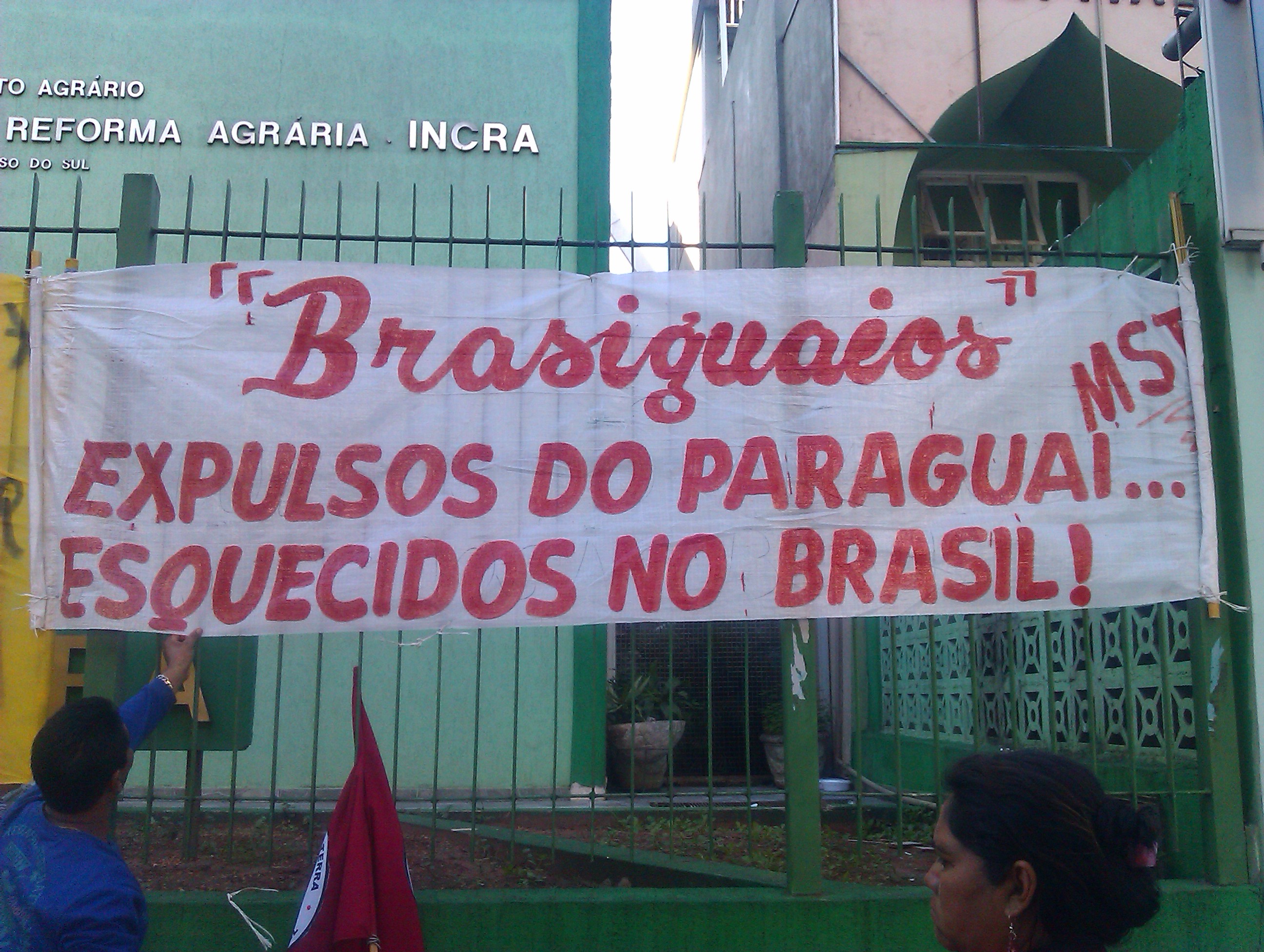Brasiguaio Identities
An outcome of the pursuit of land across the Brazilian and Paraguayan shared border region
DOI:
https://doi.org/10.31273/eirj.v5i1.205Keywords:
migration, borders, transnationalism, Brazil, Paraguay, Brasiguaios, migración, fronteras, transnacionalismo, BrasiguayosAbstract
The movement of people between places is far from being a new or isolated phenomenon and is happening more often than before. This is also the case for individuals who moved from Brazil and Paraguay. Based on the existing literature as well as on data gathered in the landless camp Antônio Irmão, also known locally as the ‘Brasiguaios landless camp’ in Itaquiraí in the state of Mato Grosso do Sul, Brazil, this article explains how their search for a piece of land in either Brazil and Paraguay influenced the formation of the Brasiguaios identities. First, I briefly approach the foundation of transnationalism scholarship, which guided my research. Next, I demonstrate how land policies in Brazil and Paraguay, aimed at developing their respective border regions, played a role in the migration of Brazilians to Paraguayan and then the return of a number of them to Brazil. Last, I share the narrative of individuals in the Brasiguaio landless camp in the pursuit of land in either country. At the core of my argument is that the Brasiguaio identities of this landless group result from their pursuit of land rather than from migration processes.
Resumen en Español
El movimiento de personas entre lugares está lejos de ser un fenómeno nuevo o aislado y está ocurriendo con más frecuencia que antes. Este también es el caso de las personas que se mudaron de Brasil a Paraguay. Basando-se en la literatura existente, así como datos recopilados en el campamento de los sin tierra Antônio Irmão, también conocido localmente como el “campamento de los Brasiguaios” en Itaquiraí en el estado de Mato Grosso do Sul, Brasil, este artículo explica cómo su búsqueda por un pedazo de tierra en Brasil o Paraguay influyó en la formación de sus identidades Brasiguaias. Primero, abordo brevemente al campo de estudios del transnacionalismo, que ha guiado mi investigación. Después, demuestro cómo las políticas agrarias en Brasil y Paraguay, buscando desarrollar sus respectivas regiones fronterizas, desempeñaron un papel en la migración de los brasileños a Paraguay y en el regreso de muchos de ellos a Brasil. Finalmente, comparto la narrativa de individuos en el campamento de los Brasiguaios que han buscado un pedazo de tierras en uno de los países. Mi argumento central es que las identidades Brasiguaias de los miembros de este grupo resultan de su búsqueda por un pedazo de tierra y no meramente por los procesos migratorios.
Downloads

Downloads
Published
Issue
Section
License
Copyright (c) 2017 Marcos Estrada

This work is licensed under a Creative Commons Attribution 4.0 International License.
Authors who publish with this journal agree to the following terms:
Authors retain copyright and grant the journal right of first publication with the work simultaneously licensed under a Creative Commons Attribution License (CC-BY), which permits use and redistribution of the work provided that the original author and source are credited, a link to the license is included, and an indication of changes which were made. Third-party users may not apply legal terms or technological measures to the published article which legally restrict others from doing anything the license permits.
If accepted for publication authors’ work will be made open access and distributed under a Creative Commons Attribution (CC-BY) license unless previously agreed with Exchanges’ Editor-in-Chief prior to submission.
Authors are able to enter into separate, additional contractual arrangements for the non-exclusive distribution of the journal's published version of the work (e.g., post it to an institutional repository or publish it in a book), with an acknowledgement of its initial publication in this journal.
Authors are permitted and encouraged to post their work online (e.g., in institutional repositories or on their website) prior to and during the submission process, as it can lead to productive exchanges, as well as earlier and greater citation of published work. (see: The Effect of Open Access)
